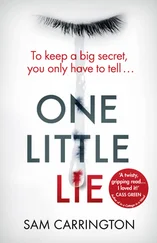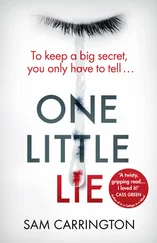‘Get it,’ she said.
‘But it’s expensive, Mum.’
‘We’ll split the bill,’ said Gerd.
Then her eyes fell on a matching waistcoat. ‘Try that,’ she said.
It was a perfect fit. ‘We’ll take that too,’ she said. ‘I’m paying.’
* * *
They buried him in that suit. On the lapel they pinned three badges that had been lying on his desk. No to All Racism , one of them said. Red and Proud , said another. On the last, AUF shone white against red.
As he lay in his coffin in the white-painted chapel in Bardu, Gerd spread the blue woven cover over him. Sky blue, blue as the sky. Just as Anders had wanted it.
She could never weave with that colour again.
He had brought some of his clothes. But it wasn’t like at home, where he had a wardrobe in his room.
Garments from his earlier life were kept in the storeroom with the other inmates’ clothes. When he wanted to change, he had to ask.
Within a few months of starting his sentence he had had enough, and composed a letter of complaint to the Directorate of Correctional Service at Ila prison.
‘Since it is usually quite chilly in the cell, I generally wear a thick sweater or jacket,’ he wrote. ‘I regularly have problems when asking for one. For some reason they often bring me one of my Lacoste jerseys, despite my having pointed out on several occasions that I do not want one of these as they are valuable and must be preserved from too much wear and tear. I have therefore ended up on various occasions having to freeze for one or two days until I can talk one of the warders into going down to the store to get one of the three proper sweaters.’
Anders Behring Breivik was detained in the high-security section; daily routines were strict. It annoyed him intensely. At home he had kept various creams and perfume bottles, whereas here he was not even permitted a tiny tube of moisturiser. Every morning he was given a little plastic cup with some of his day cream in it. Unfortunately the cream dried up and became unfit for use in the course of the day. This was grounds for complaint.
He was often given only enough butter for two or, at a pinch, three slices of bread, even though they knew that he ate four. ‘This creates unnecessary annoyance because I either have to eat dry bread or be made to feel guilty for asking for more.’ He described the warders’ collection of the plastic cutlery and other items after meals as a form of low-intensity psychological terror. They came so quickly that he felt obliged to hurry his food and drink. And because he was not allowed a thermos flask in the cell, his coffee was cold when he got it, eighty per cent of the time.
In his complaint he alleged that he was considering reporting the prison to the police for breaches of the Norwegian constitution, human rights legislation and the Convention against Torture.
* * *
He was in solitary confinement, in a cell stripped of furniture, with white walls on which no decoration was allowed. The section was commonly known as the Basement. He complained about the lack of furnishing and the fact that he was ‘denied the inspiration and mental energy which art on the walls’ could provide. He also complained about the view: ‘A nine-metre prison wall blocks out everything except the tops of the trees.’ He complained that the windows were covered in a dark film that kept out some of the natural light. ‘As a result I have to take vitamin pills to prevent vitamin D deficiency, among other things.’
Lighting was a general problem. The switch was outside the cell. It was frustrating to wait ‘up to forty minutes’ for them to turn up with his toothbrush and switch off the lights. The on–off switch for the TV was also outside the room. He had to tell them what he wanted to watch, and on which channel. The picture was poor and there was an annoying echo on the sound because the set was inside a secure box made of perspex and steel. As for radio, he was not pleased that he could only get P1 and P3 programmes and not the culture channel, P2. This was detrimental to his intellectual wellbeing.
He had three cells at his disposal. The first was a living cell with a bed, a place to eat and a cupboard. The second was a work cell with a typewriter firmly stuck to a table. The third was a workout cell with a treadmill. He was not satisfied with the running machine. He was not a long-distance runner, he had told the prison, but a body builder. Naturally, free weights were out of the question on security grounds, but already on his very first week in prison he had devised ways of toning his body with the help of his own body weight. Then he lost his motivation. Through the autumn of 2012 he lost his spark. ‘A sense of resignation,’ his lawyer called it.
* * *
He was working on a manuscript about the trial, with the title The Breivik Diaries . He was writing it in English. Norwegian readers did not interest him; it was the international book market that he wanted to reach.
But his working conditions were not the best. He could not move freely between the cells. He often had to wait when he asked to be transferred to the work cell. For a time, he did not want to go there at all. ‘I feel that the price I have to pay for using this facility is too high, as I have to fight a daily battle to get access to the cell for a full working day.’
The worst part of being moved between cells was the strip searches. ‘A strip search involves being ordered to take off all my clothes, which are then thoroughly checked, item by item,’ he wrote. This was something he dreaded every day, he commented. It also annoyed him that he had to organise his papers again after every such search. He also had to remake his bed. The place was such a mess whenever they had been there.
If he did not use the work cell with the table-mounted typewriter, he was limited to pen and paper. He had been given a soft rubber pen and complained that he could not write more than ten to fifteen words a minute with it. The pen was not ergonomic and made his hand hurt.
There were various things about life in prison that he found painful. Among them the handcuffs he had to wear when he was moved between cells or taken out into the exercise yard. He claimed he had developed ‘friction cuts’ because ‘the steel rim on the inside of the cuffs rubs the skin on my wrists painfully raw’. He noted that he had developed a sense of anxiety about handcuffs, perceiving them as ‘a violation and mental burden’. There were several stresses and strains of that kind.
‘The two cameras and the peephole in the door of the study cell contribute to a constant sense of tension and surveillance.’ Checks through the hatch could come at inconvenient times, such as ‘just at the moment one is using the toilet, which adds considerably to the sense of physical strain. It feels at times like a mental shock, especially if the hatch is slammed as well.’ At nights he could be woken by a torch shining in through the hatch.
At times it was hard to concentrate when he was writing. Some of the other prisoners in solitary confinement turned up the volume of their music just to provoke him, he wrote. The sound of wardens yelling and fellow prisoners shouting also threw him out. ‘I want peace and quiet. I want to be left undisturbed,’ he wrote.
* * *
For a time, prison life had not been too bad. When the ban on letters and visits was lifted in December 2011, four months before the trial, there was a pile of correspondence waiting for him. Some of it was from like-minded people. He answered many of the letters, and what he wrote was then reproduced on various blogs. The police had kept their promise and had provided a PC, so he made a template for a letter of reply and could simply insert the name of the addressee and at times amend the introduction a little. Then all he had to do was ask for the letters to be printed out and then he could send them off by post. It was just as he had wanted it. His words were being disseminated. They were reproduced on blogs and floated round in cyberspace and got out to his supporters. His throne grew taller.
Читать дальше












